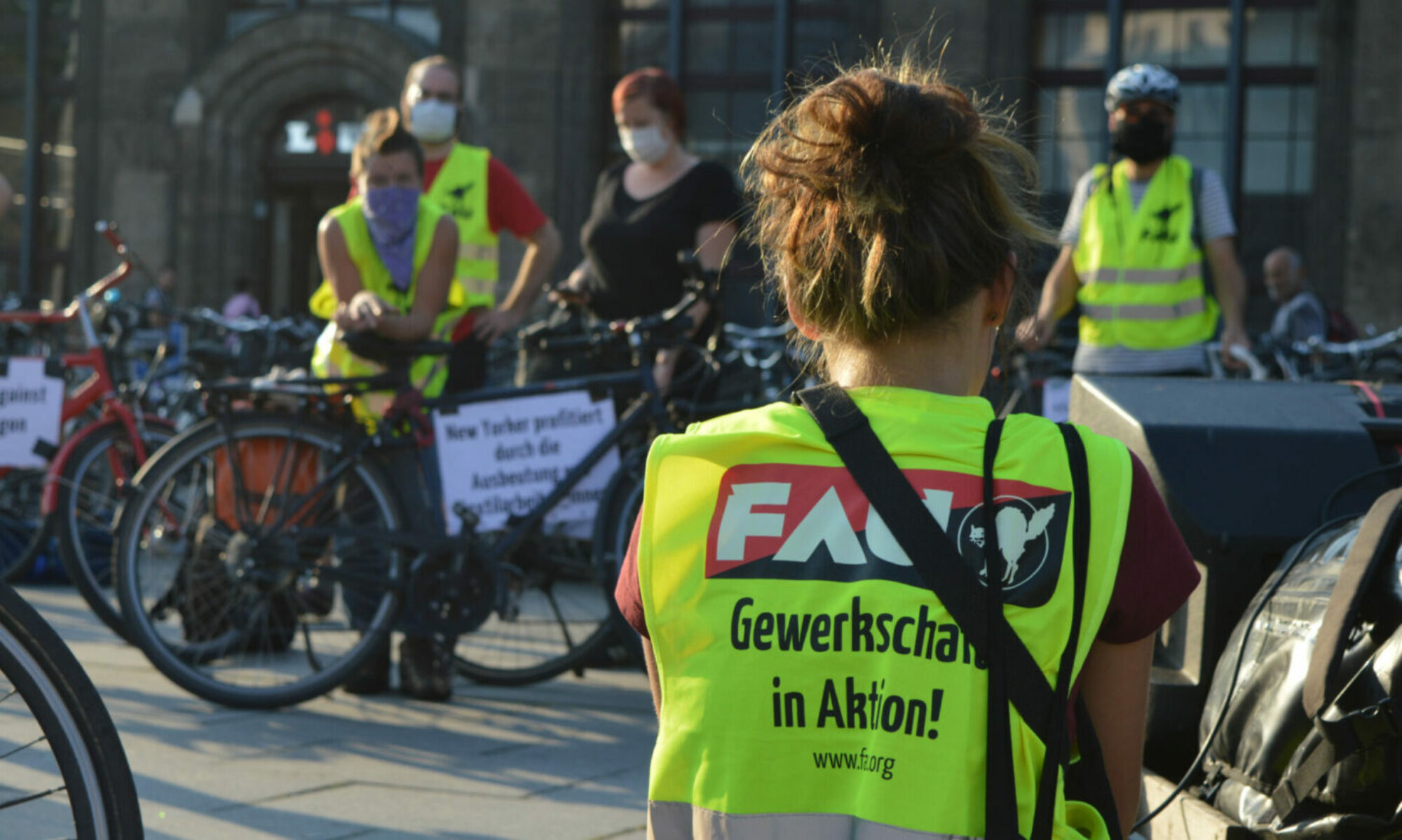6th of April | 2 pm | Postplatz Dresden | Website of the Alliance “Stop Dresden’s Rent Madness!”
As in many large cities, rents in Dresden are rising rapidly. Many people can hardly afford their flat anymore. Others have to move to cheaper neighbourhoods. They are driven out of their environment so that a few can make high profits with their properties. While wages have remained at the same level for years, the share of rent in the monthly costs is increasing. If the rent is only just affordable, it becomes a burden that threatens the existence of the company when small cuts are made.
The market will not fix it!
The policy pursued in Dresden for decades of making living space affordable for everyone with more offers has not been fulfilled even 14 years after the sale of the former municipal housing association Woba. On the contrary: rents have risen over 30% since then. Nevertheless, politicians and interest groups are still following the salvation promise of an unregulated capital market. Profit-oriented investments are being promoted, while projects for the common good are being ignored.
We believe that housing is a human right and not an investment. A responsible policy is required to create affordable housing for all. Therefore we join the Europe-wide day of action “stop rent madness” and gather on 6th of April 2019 at 14 pm on Postplatz to express our demands.
We want a city:
- that is not a business model, but a living space for everyone – regardless of financial means, origin, language, gender, age or health
- where houses are built for living and not for profit
- where no one has to live in shelters, homes or on the street
- in which social and affordable housing is expanded and exists permanently
- in which housing, soil and nature are common property
This requires a radical change of course in housing policy. We want solutions for the common good in housing. In order to improve the current situation, changes in federal policy are particularly necessary. But there is also room for action at state and municipal level. Cities such as Leipzig, Berlin or Munich demonstrate it. With a view to this year’s elections in Dresden and Saxony, we call for a change of course in housing policy that aims for the well-being of all and not the profit of the few!

